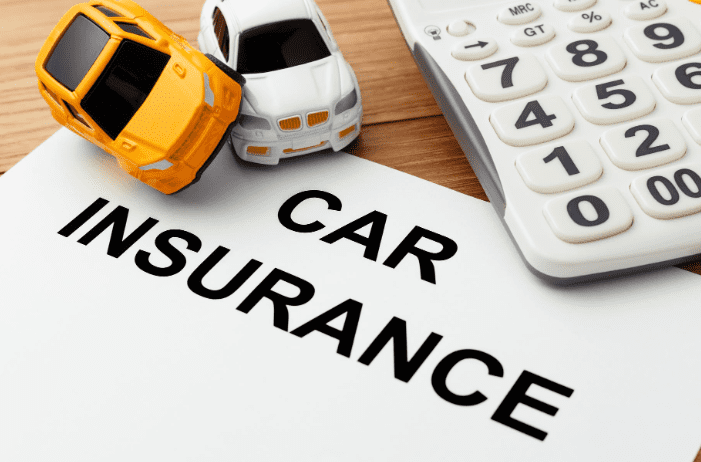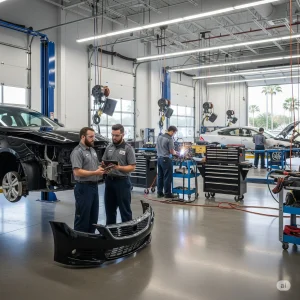Knowing What is collision coverage in car insurance helps car owners manage repair costs after accidents. Whether you’re dealing with major collisions or minor fender-benders, understanding this coverage can protect you from hefty out-of-pocket expenses. This article delves into collision coverage in car insurance, comparing it with other insurance types, and explaining its importance in different scenarios.
Table of Contents
ToggleWhat Is the Difference Between Comprehensive and Collision Coverage in Car Insurance?
Comprehensive and collision coverage are often confused, so some people don’t differentiate between Knowing What is collision coverage in car insurance and What is Comprehensive Insurance So it’is important to read the following points:
What is collision coverage in car insurance
This covers damage resulting from a collision with another vehicle or object, regardless of who is at fault. If you accidentally hit a pole or another car, collision insurance steps in to handle the repair costs.
Is collision coverage better than full coverage?
Knowing What is collision coverage in car insurance helps in covering the cost of repairing or replacing your vehicle if it sustains damage in a collision. Unlike other types of insurance that primarily focus on liability or damages caused to others, collision coverage focuses solely on your own vehicle. This makes it an essential safety net for car owners seeking to protect their investment.
Should I Have Collision Insurance on a 10-Year-Old Car?
The decision to maintain collision insurance on an older car depends on the car’s value and your financial situation so you should know What is collision coverage in car insurance well to decide.
High-Value Cars: If your 10-year-old car still holds significant value, collision coverage can be a wise investment to avoid costly repairs. This coverage ensures that you won’t bear the full financial burden of repairs if an accident occurs..
Low-Value Cars: For vehicles with a low market value, the cost of collision coverage may outweigh its benefits. Consider dropping it if repairs would likely cost more than the car’s worth. In this scenario, the amount you would pay for the insurance premiums might not justify the potential payout
What Does Collision Insurance Cover in a Car Insurance Policy?
If you don’t know Knowing What is collision coverage in car insurance or what it covers read these points:
- Collisions with other vehicles
: If your car is involved in an accident with another vehicle, collision insurance helps pay for the repairs or replacement costs, regardless of who is at fault. This ensures that you are protected even if the other driver is uninsured or underinsured.
The coverage differ according to how much does collision repair cost
- Collisions with stationary objects like trees, fences, or poles:
If your car crashes into a stationary object, collision coverage will cover the damage. This is especially useful if you accidentally hit something while driving, such as a guardrail, mailbox, or a tree .
- Single-car accidents, such as rollovers:
If your vehicle is involved in a single-car accident, like rolling over, collision insurance covers the repair or replacement costs. This is particularly beneficial in situations where the driver loses control due to weather conditions or road hazards.
You should know What is collision coverage in car insurance and what it covers to know your rights
Collision Coverage Better Than Full Coverage?
“Full coverage” typically combines liability, comprehensive, and collision insurance. While if you know What is collision coverage in car insurance you find it focuses on repairing your car after an accident, full coverage provides a broader safety net. It includes liability protection for damages to other people’s property or injuries, in addition to coverage for non-collision incidents, such as theft, vandalism, or natural disasters finally you should use Online Collision Repair Estimate before anything.
What Is the Difference Between Collision and Comprehensive Insurance?
If you interested in knowing the comprehensive vs collision deductible read the following points:
Covers damage to your vehicle as a result of collisions or rollovers.
Covers damage to your vehicle as a result of collisions or rollovers.This covers damages to your vehicle resulting from crashes or rollovers, regardless of who is at fault. It ensures that your car is repaired or replaced after an accident involving another vehicle or a stationary object
Non-accident coverage
Unlike collision coverage, comprehensive insurance protects against non-collision incidents, such as natural disasters, theft, vandalism, or damage from falling objects. It is designed to cover events outside of accidents, ensuring your vehicle is safeguarded from various unforeseen circumstances.
While comprehensive insurance is ideal for protecting against a wide range of potential incidents, collision insurance ensures you are covered during accidents. Combining both provides robust coverage for a more secure driving experience.

What Is Personal Accident Cover in Car Insurance?
Personal accident cover is an add-on feature that provides financial compensation in case of injuries or fatalities resulting from car accidents. It typically includes:
Medical Expenses:
This coverage typically includes compensation for medical expenses incurred due to injuries sustained during a car accident. It helps cover hospital bills, doctor consultations, and treatment costs that may arise from the accident.
Compensation for Disability or Death:
Personal accident cover also provides compensation in case of permanent disability or death resulting from a car accident. This ensures that your family or beneficiaries are financially supported if you are unable to work or pass away due to an accident.
This type of coverage is particularly beneficial for drivers and passengers who may not have adequate health insurance or need extra financial security in case of unforeseen accidents
Some people confuse health insurance with collision insurance for cars, so it is important to understand What is collision coverage in car insurance is to avoid any confusion.
Roadside Assistance 7/24
Many insurance providers offer 24/7 roadside assistance as part of their policies. This service includes:
Towing Services: If your car breaks down or is involved in an accident, towing services will transport your vehicle to the nearest repair shop or your desired location. This is especially useful if your car is no longer drivable, ensuring you’re not stranded on the side of the road.
Battery Jump-Starts: In case your car’s battery dies, roadside assistance offers a jump-start to get you back on the road. This service is convenient, especially when you’re in a remote location and unable to start your car on your own.
Flat Tire Repairs: If you experience a flat tire, roadside assistance can help by either repairing the tire or replacing it with your spare. This ensures you don’t have to change the tire yourself, which can be difficult or dangerous, especially in certain weather conditions.
Emergency Fuel Delivery: If you run out of fuel, some insurance policies offer emergency fuel delivery to your location. This service can save you time and stress, helping you avoid the hassle of finding a nearby gas station when you’re stranded Knowing What is collision coverage in car insurance will help you in many times
You should ask how long does collision repair take before starting to prepare yourself.
for collision repair in Houston call us at (713)243-3535

collision repair in HOUSTON TX now
Why Buy Collision Coverage?
- Financial Protection: Avoid paying large repair bills out-of-pocket after an accident. Collision coverage ensures that your insurance company will cover the cost of repairs or replacement, helping you avoid unexpected expenses that could be financially burdensome. .
- Peace of Mind: Drive confidently knowing you’re covered in case of a collision. With knowing What is collision coverage in car insurance, you’re not only protecting your vehicle but also your peace of mind. Knowing that you’re financially protected in case of an accident lets you focus on the road and avoid worrying about potential repairs or replacements.
- Vehicle Requirement: Many lenders or leasing companies require collision coverage. If you’re financing or leasing your car, the lender or leasing company will often mandate that you carry collision coverage as part of your agreement
Generally you should use the collision insurance and when to drop collision insurance. You also should be aware of some details as progressive collision coverage limit and progressive collision coverage deductible and you should ask Collision Repair Estimate Calculator before using insurance
contact us now
Quality Auto Coverage Starts Here
At WestSide Collision, we believe that quality auto coverage is more than just having insurance; it’s about ensuring you’re protected in case of an accident and that your vehicle gets the best care possible. We offer affordable repairs with competitive rates, ensuring you don’t have to spend a fortune on damage repairs.
Our expert team provides high-quality service without the high cost. Whether you have collision coverage or not, we guide you through the repair process and insurance claims, helping you avoid unexpected expenses.
If you don’t know what collision coverage is, we will explain What is collision coverage in car insurance to you. Additionally, we offer free Online Collision Repair Estimate and help with insurance paperwork, making your repair process smooth and hassle-free.
.
Begin Your Free Online Quote with WestSide Collision
At WestSide Collision, we make getting a quote for auto repairs and insurance coverage easy and hassle-free. Simply visit our website, enter your vehicle details, and receive a free, no-obligation estimate for repairs and coverage options.
With transparent pricing, you’ll know exactly what to expect before committing. Our team is dedicated to finding the best collision and repair coverage for your needs, ensuring you’re fully protected.
Start your free quote today and take the first step toward reliable Collision Repair In Houston, TX and the right coverage with WestSide Collision.
Conclusion
Knowing What is collision coverage in car insurance is essential for protecting your vehicle from repair costs after accidents. By understanding the differences between collision and comprehensive coverage, assessing your car’s value, and choosing the right insurance provider, you can enjoy peace of mind and financial security on the road





